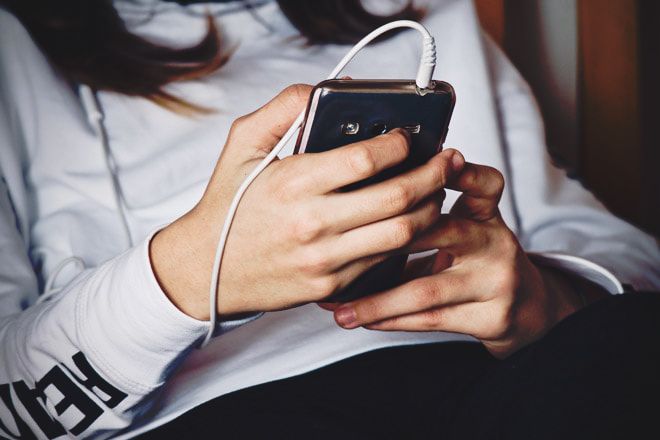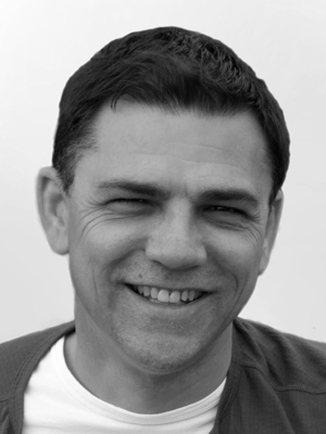|
Brexit, climate change and now a global pandemic caused by a coronavirus. 2020 is looking like a year future children will be learning about in history lessons.
Mind you it's one thing to read about it in a history book, it's quite another to find yourself in the midst of history as it's being made. The world has almost overnight become a much more frightening and uncertain place. My town centre which was once busy, is now almost deserted. In the local supermarket there are things missing from the shelves which were always there before. The pubs are shut, the streets are empty, my next door neighbour is in this strange new thing called 'self-isolation'. The news is overloaded with stories of people dying, and frightening graphs of infections accelerating ever upwards. Everyday words have been re-purposed into unfamiliar meanings, such as containment, delay, mitigation, and social distancing. And while there is an epidemic going on, an infection caused by a virus, there is another epidemic of an entirely different sort happening. An epidemic of uncertainty I just don't know what will happen. Will I get infected, will I get really sick, will I die, will someone I care about get sick, will they die? Will I have a counselling business left at the end of this? Will people I know lose their jobs? I don't know, nobody really knows, not even the people who appear on the TV every evening to give us the latest update. They are uncertain too. There is one thing I do know however, is that uncertainty is very anxiety inducing, if you don't know how to cope with it. Me, I have a bit of an advantage when it comes to dealing with uncertainty. Counselling is inherently uncertain. I deal with with it every day, and I have had a lot of practice. When you walk in the door, I haven't seen you for a week or two, I have no idea what might have happened, and I often don't know what you will talk about until you start talking about it. And while I will have an idea how to help, I don't know what will actually help until I try it out, and I don't always get it right. So the question for me is how can I point you in the right direction? How can I give you the reader of this piece pointers to dealing with uncertainty? How to not let it paralyse you? Now... Next...
Most of the problems people get with anxiety and uncertainty has very little to do with what is happening in the here and now. People are most anxious about what might be happening in some imagined future. It is their imaginations which are creating their anxiety, and it usually takes this form,
"What if X happens?" Where X are things like, "What if I lose my job?", "What if I get sick?", "What if I make a mistake?" "What if the person I am in love with leaves me?" What often lies at the bottom of these kinds of worries are that if they happen these events will be catastrophic in some way. So what we want to do is to avoid them happening at all costs, except the problem is they are usually about things over which we have no or little control. A "What if..." cycle can spiral very quickly out of control. Even worse it can paradoxically lead us to behaviour which makes the feared event more likely rather than less likely. So how do you cope with a spiralling what if cycle? Bring your focus back into the now Ask yourself, these two questions, "What do I need right now?" "What do I need next?" Stay with Now... Next... If you are thinking further ahead than tomorrow then that is already too far into the future. Bring yourself firmly and kindly back to the present. You may find a verbal stop helpful, such as saying to yourself, "Stop. I don't need to think about that right now." This approach I use with myself, and many of the people I see. Action a plan
Anxiety's job is to help us prepare for a threat in our immediate future. Psyching yourself up for that job interview for instance. It's pretty terrible at psyching you up for something which either won't happen, or may happen 6 months from now.
You may have noticed that once you are dealing with the threat, that job interview for instance, much of your anxiety subsides. This is a really common experience the reality of an event is nowhere near as frightening as thinking about it happening. Anxiety's job is to mobilise our energy so we can take action to deal with the threat. Which is why making a plan can help. A plan is not "What if I get sick?" That is a worry question, which usually has no answer. A plan is, If I get sick, I will go to this room and keep the door shut. I will take care of myself as best I can, and do my best to make sure no one else gets sick. As far as your anxiety is concerned just making a plan is taking action, because it implies action. I was talking to a friend the other evening on the phone, and he was getting anxious because his wife is a health worker, and if any of them get ill, then the whole family has to be tested and she may end up having to stay in a hotel. And as we talked it became obvious what the plan was. If he or his family get sick, then they have to go to Basingstoke to get tested. And the thing with just saying that plan out loud was that my friend started to feel calmer. The plan implies action. However you might decide that your chosen plan, needs some kind of actual action to make it work. When we are able to take action to respond to our anxiety, our anxiety will decrease. On a personal note, my house is now the tidiest it's been in months, and I am not the least bit anxious, well not about getting sick anyhow. Just watch out for the "what if..." trap. This is the trap which constantly questions whether your plan is good enough. And this is where you can return to now, next. "Now, I will take action to tidy my chosen room, next I need to re-connect with my family." And when the "what if..." thought reoccurs you can tell that thought, "I don't need to think about that right now, I need to eat dinner with my family" Yes you can
The catastrophe which usually sits beneath the "what if" worry is a fear that if X happens we will not be able to cope, that we will be unable to survive.
When I first started out on this path to be a counsellor, my placement was at an inner city school. The kinds of problems those young people bought to me would take my breath away at the sheer enormity of it all. I met people who were doing their best to survive in sometimes extremely difficult circumstances. What has never left me from my time there, that even in awful circumstances, was the sheer determination with which those young people managed to hold onto their human spirit. These people taught me a whole bunch about resilience, and I will never forget the young person who looked up at me and said "You just have to get on with it" And since then I have continued to meet people who still amaze me at just how much the human spirit can endure. We all have this ability to endure. I do, you do too. And for those who temporarily lose hope, because we do from time to time, I remember the words of my supervisor, who told me about the young person she was seeing. When this young person was struggling with suicidal thoughts, and they told my supervisor they couldn't do this, she said to them, "Yes you can! You can do this!" And in my time as a therapist, I have said something very similar to the people I have seen when they have lost sight of hope. Yes you can. You can do this.
Main image by sweetlouise
0 Comments
Leave a Reply. |
Categories
All
Archives
January 2021
|
BioI'm Mark, a Humanistic Counsellor. |
Home - Testimonials - Articles - Links - Contact - Book Appointment - Counselling Students - Privacy Policy - Terms
Mark Redwood, BA (Hons) Counselling, MBACP
© Mark Redwood 2015, 2016.2017 | Main portrait by Doug Freegard © 2015


 RSS Feed
RSS Feed